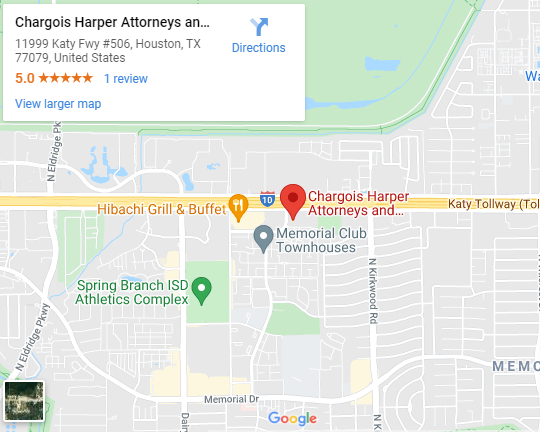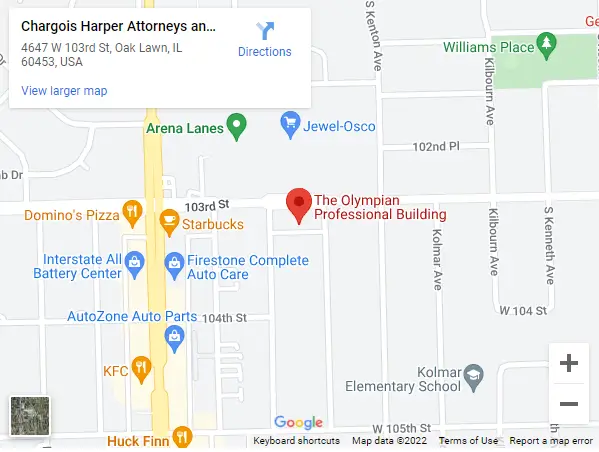What types of trusts are accessible to me in Houston, Texas?
Finding a trust that suits my needs

In the event of one’s death, an estate plan that has been carefully drafted guarantees that the person’s possessions are easily transferred to the people of their choosing. Family disputes, increased tax loads, and astronomical probate fees are all possible outcomes of not having an estate plan. In addition to a basic will, complex estate strategies should take advantage of one or perhaps more trusts to further streamline the process.
- Finding a trust that suits my needs
- What Is the Definition of a Trust?
- Common Types of Trusts
- Start a Discussion on Trusts That Might Be Useful for Your Purposes
This article describes the most prevalent forms of trusts and their distinguishing features and advantages.
What Is the Definition of a Trust?
In legal terms, a trust permits a trustee to keep assets for the benefit of one or more beneficiaries. A trustor, a settlor, or a grantor is the person who establishes the trust. The trustor is an irrevocable trust referred to as the beneficiary in this situation. For the transfer of assets to beneficiaries, trusts are frequently employed as just an estate planning instrument.
Trusts come in many types, with a wide range of options for how they’re used. Incorporating a trust or benefactor depends on the trustor or benefactor’s goals and financial considerations. Think about speaking with an attorney if you have any doubts.
The Fundamental Characteristics of Trusts
A trust is an account maintained by an individual or organization for the sake of another person or organization. A trust consists of the following components:
- Grantor: Also known as a “settlor” or “trustor,” a grantor is the person who establishes the trust, therefore, possesses the legal right to transfer assets into it.
- Trustee: An entity or organization that handles assets on behalf of a third party by momentarily retaining them without actually owning them. Trustees have a fiduciary duty to make decisions on behalf of the grantor and their successors, and they must faithfully carry out the mandates specified in the trust deed. As a result, it is vital to nominate only trustworthy individuals to this role.
- Beneficiary: The beneficiary is the person or entity who will benefit from the allocated trust. The same trust may have many beneficiaries, all of whom may indeed be entitled to a different portion of the assets.
- Property: These are the trust’s assets, which might include money, real estate, jewelry, vehicles, and artwork. A living trust, sometimes known as the “principal” or “corpus,” allows such property to be deposited into the trust while the grantor is still alive. Conversely, assets can be placed into a testamentary trust upon the grantor’s death, as directed by a will.
- Revocable trust: The grantor can change this form of trust as much as they like during their lifetime.
- Irrevocable trust: A trust that cannot be changed, modified, or canceled.
- Taxes: In general, each trust pays its taxes. Therefore it must get a federal identification number(ID) and make an annual return. Certain living trusts make use of the grantor’s tax ID.
Difference between a Trust and a Will
A trust is not intended to take the place of a will. The majority of trusts are limited in scope, dealing primarily with certain assets like insurance coverage or a bit of private land. In contrast, a will regulates the transfer of almost all other assets in your estate.
Common Types of Trusts
The following are the commonly used forms of trusts:
Living Trust
A living trust is often established when the grantor is still alive by transferring property to a trustee. In most cases, the grantor maintains the authority to alter or dissolve the trust. However, after the grantor’s death, the trust becomes irreversible and cannot be changed. Trustees must observe the regulations outlined in the creation papers regarding the allocation of assets and the tax payments while using these vehicles.
Living trusts provide the following benefits:
- The grantor desires end-of-life/healthcare arrangements.
- Protection against grantor and beneficiary incapacity
- Delayed probates and costs are eliminated or reduced.
- A simple succession of selected trustees
- Beneficiaries get quick access to finance and principal.
- When the state mandates the lodging of an enumeration of assets, you have the right to privacy.
The following are the limits of living trusts:
Property Titling: In some circumstances, real estate assets must be omitted from a trust. An example would be in Florida, where main houses are protected from creditors by a “homestead exemption,” however, if the principal dwelling is held in a trust, the proprietor may waive that creditor protection. In these cases, you could utilize a pour-over will to synchronize property transfers into the trust following the grantor’s death.
Creditor Liabilities: A living trust does not typically give protection from creditor claims since the trust’s donor is deemed the official owner of the trust’s resources owing to the grantor’s right to terminate the trust any time they wish to.
Taxes: If the asset was never transferred to the trust, all income produced from the trust is deductible on the grantor’s income tax return.
Wills and Testamentary Trusts
A testamentary trust, also known as a “trust under will,” is established by consent only after the grantor passes away. This sort of trust can help with these estate planning objectives:
- Asset preservation for the grantor’s children from a prior marriage
- Providing lifetime income to a spouse to protect their financial future, guaranteeing that beneficiaries having special needs are cared for
- Charitable giving
Trust for Irrevocable Life Insurance
A wealthy family’s inheritance plan includes an irrevocable life insurance trust (ILIT). Individuals are presently eligible for an estate tax exemption of $11.7 million for the fiscal year 2021. However, any part of the estate over that sum should be taxed at a rate of up to 45 percent. As a result, for estates worth more than the relevant exclusion of $11.7 million, life insurance may be an effective instrument in the estate planning toolbox. By allowing the exemption of life insurance profits both from the assets of the spouse that dies first and the property of the surviving spouse, ILITs give the grantor a flexible planning strategy and a tax savings tool.
The ILIT is funded by a life insurance policy in which the trust represents both the beneficiaries and owner of the insurance. However, the grantor’s successors can continue to be beneficiaries of the trust. To legalize this plan, the grantor should live for three years after the policy is transferred, else the insurance earnings would not be omitted from the grantor’s inheritance.
Trust for Charitable Remainder
A charitable remainder trust (CRT) is a valuable estate planning instrument for anyone with valued resources, such as real estate. Donors can sell valued properties without paying capital gains tax if they fund this trust with valued assets. Moreover, charitable remainder trusts are a form of irrevocable trust, which means they can never be changed or discontinued without the beneficiary’s knowledge. With the formation of the trust’s irrevocable status, the grantor effectively relinquishes all ownership rights to the properties and the trust.
Qualified Domestic Trust
This unique trust allows spouses who are not U.S citizens to take advantage of the marital deduction typically available to married couples. A surviving spouse is generally entitled to a 100 percent marital deduction for any inheritance taxes due on assets. This implies that the surviving spouse doesn’t have to pay taxes on possessions up to a certain value. However, the marital deduction is not available if the surviving husband or wife is not a citizen of the U.S. The qualified domestic trust compensates for this rule.
Trust for People with Disabilities
A special needs trust is a legal structure that allows a mentally or physically sick individual, or someone chronically handicapped, to receive funds without losing benefits from public assistance programs. Because public assistance programs for persons with special needs are based on assets and income limits, money placed in a special needs trust does not impact their qualification for public assistance.
Crummy Trust
A Crummy trust is a form of trust commonly used to make periodic donations of assets to children. The grantor designs the trust such that the recipient has 30 days to take ownership of the gift. This indicates that the donation is deemed a “current gift,” which is not included in the grantor’s estate. If the grantee does not use the present gift, it is transferred into the trust. The beneficiary has a strong motivation not to exercise their entitlement to the instant gift because doing so would result in the grantor ceasing to make future contributions. When a donation becomes part of a trust, it is dispersed by the provisions of the trust.
Why do I need a Trust?
A trust isn’t only for the rich and famous. Many people will find an estate planning instrument like a trust to be beneficial. However, opening one comes with a hefty price tag, so unless you already have a significant amount of assets, it’s not worth it.
As a general rule of thumb, you should aim towards:
Anytime you have assets, such as real estate, with an estimated value greater than $100,000, or have exact guidelines on when and how you should give your estate to your loved ones after your death, a trust may be the best option. The use of trusts can help you save money on your estate taxes and shield your assets from the claims of litigation and creditors.
It’s easy to create a trust, but it may be challenging to manage one. Before establishing one, speak with your estate planning attorney about the benefits and drawbacks of each form.
Where can I acquire a trust?
If you wish to set up a trust, you should consult with an estate attorney. With many federal and state laws to consider, it’s critical to seek the counsel and assistance of a reliable Vancouver estate planning attorney. A lawyer can walk you through the many types of trusts and help you identify which one best matches your assets and goals – all while ensuring it’s legally sound.
Start a Discussion on Trusts That Might Be Useful for Your Purposes
These are some of the several types of trusts which we assist customers in establishing and managing. Our estate planning attorneys here at Chargois Harper assist clients in transferring asset titles to trusts that they establish as appropriate. We additionally assist trustees with the administration of trusts. Our legal team of estate planning attorneys here in Houston, Texas, are ready to assist you with establishing, modifying, or administering one or more trusts. Call our estate planning law firm in Texas at (832) 699-1953 to set up a free consultation.
Visit Us:

You can count on us to protect your interests and resolve your legal concerns in Texas & Illinois.
Facing legal family disputes in Texas?
Dealing with legal disputes can be complicated and overwhelming, especially when it can affect you and your family, but you don't have to face it alone. Whether it's divorce, child support, custody and visitation, or guardianship, our Houston family law attorneys at Chargois Harper have the knowledge, experience, and compassion to help you through your family law case.
Houston Office
11999 Katy Freeway #506
Houston, TX 77079
Illinois Office
4647 W. 103rd Street, Oak Lawn Illinois 60453
Get Help From Our Illinois & Texas Attorneys
All the information on this website – www.chargoisharper.com – is published in good faith and for general information purposes only. Chargois Harper Attorneys and Counselors at Law does not make any warranties about the completeness, reliability and accuracy of this information. Any action you take upon the information you find on this website (Chargois Harper Attorneys and Counselors at Law), is strictly at your own risk. Chargois Harper Attorneys and Counselors at Law will not be liable for any losses and/or damages in connection with the use of our website.
Copyright © 2024 Chargois Harper Attorneys and Counselors at Law - All Rights Reserved. | Powered by Advantage Attorney Marketing & Cloud Solutions




